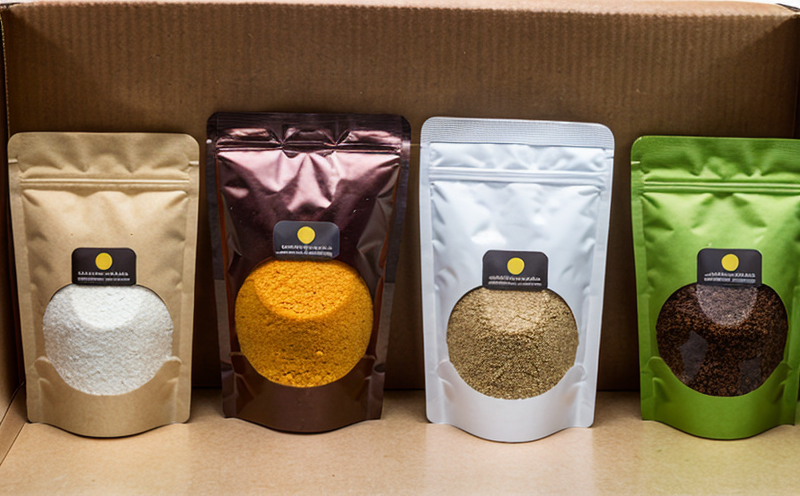Recyclability Testing of Food Contact Plastics
The importance of recyclability in food contact plastics cannot be overstated. As consumer demand for sustainable products grows, so too does the need to ensure that materials used in packaging are both safe and environmentally friendly. Recyclability testing is a critical step in this process, allowing manufacturers to assess whether their plastics can be effectively recycled without compromising safety or quality.
Our laboratory specializes in providing comprehensive recyclability testing services for food contact plastics, ensuring compliance with international standards such as ISO 14021 and ASTM D7835. This service is particularly relevant for sectors like consumer products and product safety testing, where the integrity of packaging materials is paramount.
The recyclability testing process involves several key steps, each designed to evaluate different aspects of a plastic's suitability for recycling. These include:
- Assessment of chemical compatibility with food contact requirements
- Evaluation of mechanical properties post-recycling
- Determination of thermal stability during the recycling process
- Testing for potential leachates or additives that could affect safety
By conducting these tests, we provide our clients with detailed reports that outline not only their product's recyclability but also offer recommendations for improvements. This service is essential for companies looking to meet regulatory requirements while also enhancing their environmental footprint.
The benefits of thorough recyclability testing extend beyond mere compliance; they play a crucial role in ensuring brand reputation, consumer trust, and long-term sustainability. By investing in this testing, organizations can demonstrate their commitment to responsible manufacturing practices, which is increasingly important in today's market.
Scope and Methodology
The scope of recyclability testing for food contact plastics encompasses a wide range of parameters that must be evaluated to ensure the material’s safety and environmental impact. The methodology we employ follows internationally recognized standards such as ISO 14025, ASTM D7835, EN 16934, and others.
Our testing process involves multiple stages:
- Initial Assessment: This phase includes reviewing the chemical composition of the plastic to ensure it meets food contact safety standards (e.g., ISO 21570).
- Thermal Stability Testing: Using differential scanning calorimetry (DSC), we assess how well the plastic withstands high temperatures during recycling processes, ensuring that it does not degrade into harmful substances.
- Mechanical Property Evaluation: After simulated recycling conditions, we measure changes in tensile strength and other mechanical properties to determine if the material remains fit for use as food packaging.
- Leachate Analysis: We conduct tests to identify any potential leachable contaminants that could migrate from the plastic into food products. This ensures compliance with standards like FDA regulations regarding food contact materials.
The results of these tests provide a comprehensive picture of the recyclability and safety of the material, allowing us to offer precise recommendations for improvement or modification where necessary.
Quality and Reliability Assurance
Ensuring high-quality and reliable results is at the heart of our service offerings. We maintain strict quality control measures, including ISO/IEC 17025 accreditation, to ensure that every test conducted in our laboratory meets the highest standards.
Our experienced staff uses state-of-the-art equipment calibrated according to international guidelines. This ensures consistent and accurate results across all samples tested. Regular internal audits and external peer reviews further enhance our credibility and reliability.
We also invest heavily in ongoing training for our personnel, ensuring they are up-to-date with the latest industry developments and best practices. By combining advanced technology with expert knowledge, we deliver services that exceed expectations while maintaining a strong commitment to accuracy and precision.





